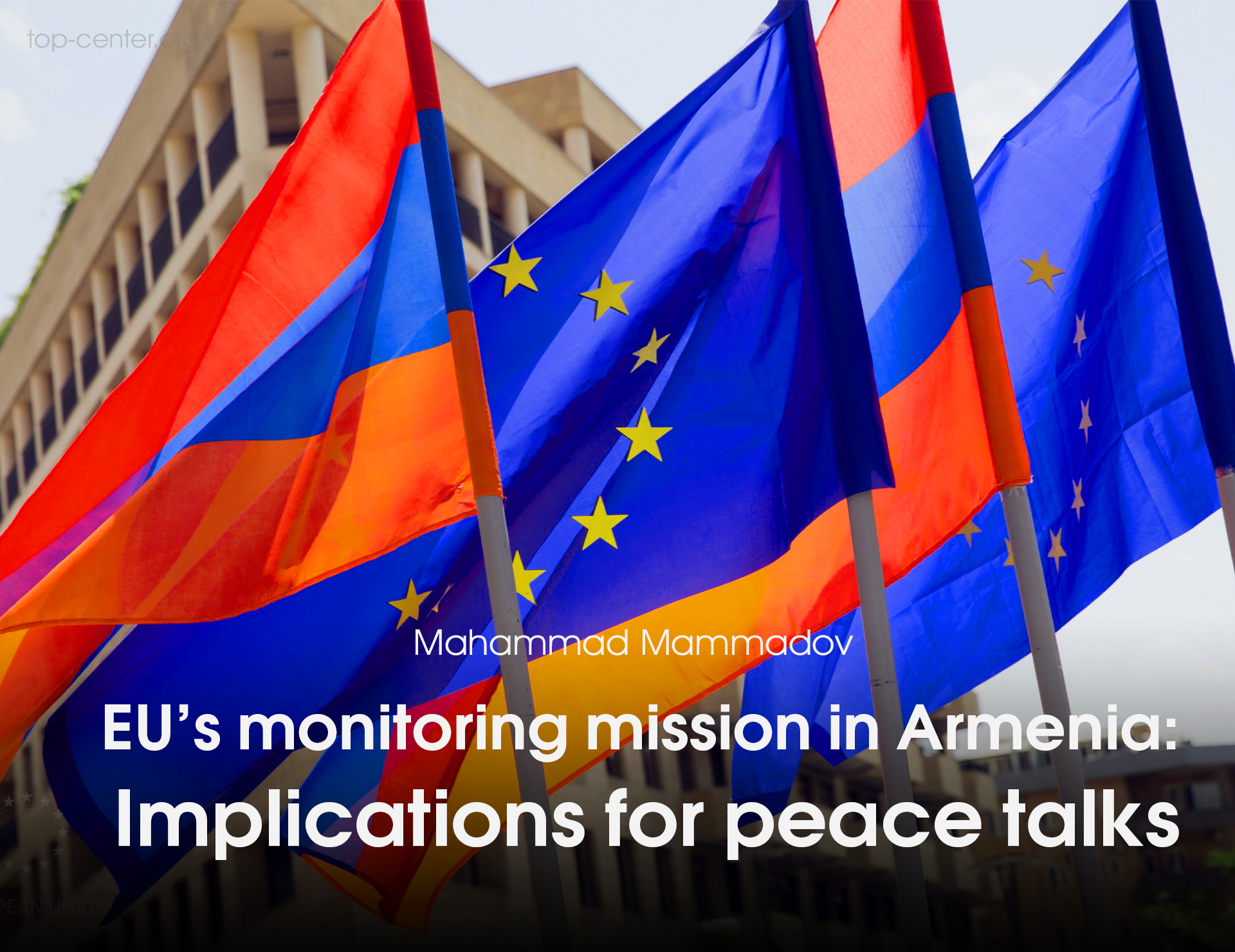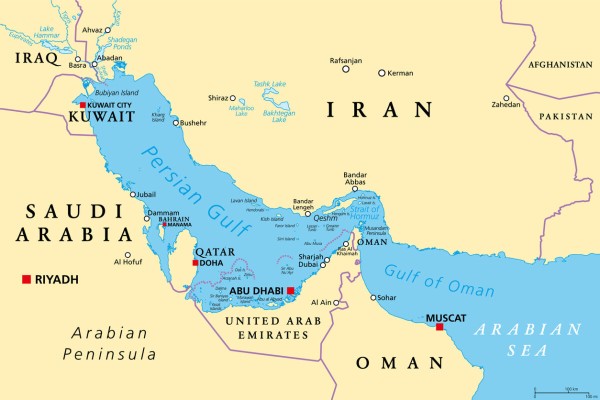EU’s monitoring mission in Armenia: Implications for peace talks

On January 23rd, the European Council declared the establishment of a civilian EU Monitoring Mission in Armenia (EUMA) under its Common Security and Defense Policy. According to EU foreign policy chief Joseph Borrell, the mission will include about 100 observers with an initial mandate of two years and its operational headquarters will be in Yeghegnadzor, Vayots Dzor region of Armenia. The EU Council's decision on the mission present it as Brussels’ attempt as an “impartial and credible actor” to contribute to stability in the border areas of Armenia, build confidence on the ground, and ensure an environment conducive to normalization efforts between Armenia and Azerbaijan supported by the EU.
It was in the context of the potential signing of a peace agreement between Armenia and Azerbaijan that the deployment of an EU monitoring capacity (EUMCAP) to Armenia came to the agenda in the Prague meeting on October 6. As a result of the quadrilateral negotiations between the leaders of Azerbaijan, Armenia, the EU, and France, Brussels sent 40 monitors seconded from the EU Monitoring Mission in Georgia (EUMM) to the Armenian side of the Armenia-Azerbaijan border on October 20. The mission was supposed to help alleviate the two countries’ security concerns while the EU-mediated peace agreement would be concluded by the end of 2022. Despite much optimism, the prospects for a peace agreement grew dimmer after Armenian Prime Minister Nikol Pashinyan conditioned his participation in the December 7 meeting in Brussels to France’s inclusion into the negotiations which Azerbaijan vehemently opposed due to Paris’ biased stance on the Karabakh issue. On December 19, the EUMCAP’s mission in Armenia came to an end and with the Armenian Foreign Minister Ararat Mirzoyan’s letter to the EU High Representative asking for the prolongation of the mission, the EU Council decided to deploy a full-fledged monitoring mission along the entire border with Azerbaijan, this time without consulting with Baku.
Expectedly, Armenia welcomed the European Council’s decision as a significant contribution to regional peace and security against the backdrop of Russia’s waning influence in the South Caucasus. Failing to garner much-needed support from Moscow for its dealings with Azerbaijan, Yerevan came to see the growing EU involvement in its security affairs as an essential component of its new balancing policy. The creation of a linkage between Armenian security and the EU’s common security and defense policy is expected to bolster Armenia-EU ties, enhancing its geopolitical visibility that has long been overshadowed by the EU-Azerbaijan strategic energy partnership. Azerbaijan, on the contrary, was highly disappointed by the EU’s decision to send monitors near its borders. “The sending of this mission is, of course, very unwelcome. This will not boost security; rather it will undermine the format of negotiations with us”, said President Aliyev in an interview with local TV channels on January 10. Referring to Armenia’s post-Prague behavior, the Azerbaijani foreign ministry warned that Yerevan should not misuse the EU deployment to undermine the already fragile normalization process between Armenia and Azerbaijan.
If the recent past is a guide, the deployment of the EU mission to Armenia can play a vital role in diminishing the possibility of military escalation along the undemarcated borders. The crux of the EUMA could be its contribution to decreasing the pressures of the complex security dilemma between Baku and Yerevan, which has been further exacerbated by the lack of negotiations and hence growing mistrust between the two countries, and the negative involvement of Russia and Iran in the region. The disparity in military capabilities and the advantage of offense over defense in terms of short and quick military operations increases the likelihood of new military clashes taking into account Armenia’s ongoing territorial claims against Azerbaijan and the latter’s eagerness to reciprocate. The dispute revolving around the closure of the strategic Lachin road has added another strain to the already tense situation. Thus the expectation is that the EU presence on the border will establish a relatively more permissive environment where Azerbaijan and Armenia will find it easier to engage in peace talks.
The problem, however, is that the EU’s decision to send monitors to Armenia lacks clear agenda with regard to peace talks, except for its general emphasis on the normalization process. In the Prague meeting, Baku agreed to the EU deployment for two months because it believed that it would serve a certain agenda, which was the conclusion of the peace treaty by the end of 2022. With a longer-term, full-fledged monitoring mission in Armenia sent without coordination with Azerbaijan, however, Brussels may lose Azerbaijan’s trust, which will affect its perception of the EU as an “impartial and credible” actor in the negotiations process. As seen from the Azerbaijani foreign ministry’s statement, Baku thinks this mission will help Armenia delay the signing of a long overdue peace treaty and gain time for the emergence of a regional balance of power amenable to its interests. Between the two tracks championed by the EU Council President Charles Michel and French President Emmanuel Macron, Brussels seems to have opted for the latter where Azerbaijan’s growing power has to be balanced even at the expense of the conclusion of a peace treaty with Armenia. Therefore, in the next months, the EU mediation may share the fate of the OSCE Minsk Group which Azerbaijan perceived as an institutional framework manipulated by biased countries to score geopolitical points rather than contribute to peace and stability in the South Caucasus. These all do not mean that Azerbaijan will ditch the EU mediation but trust will no longer be there which will have serious ramifications for the future of the most efficient mediation track in the post-Karabakh War period.







